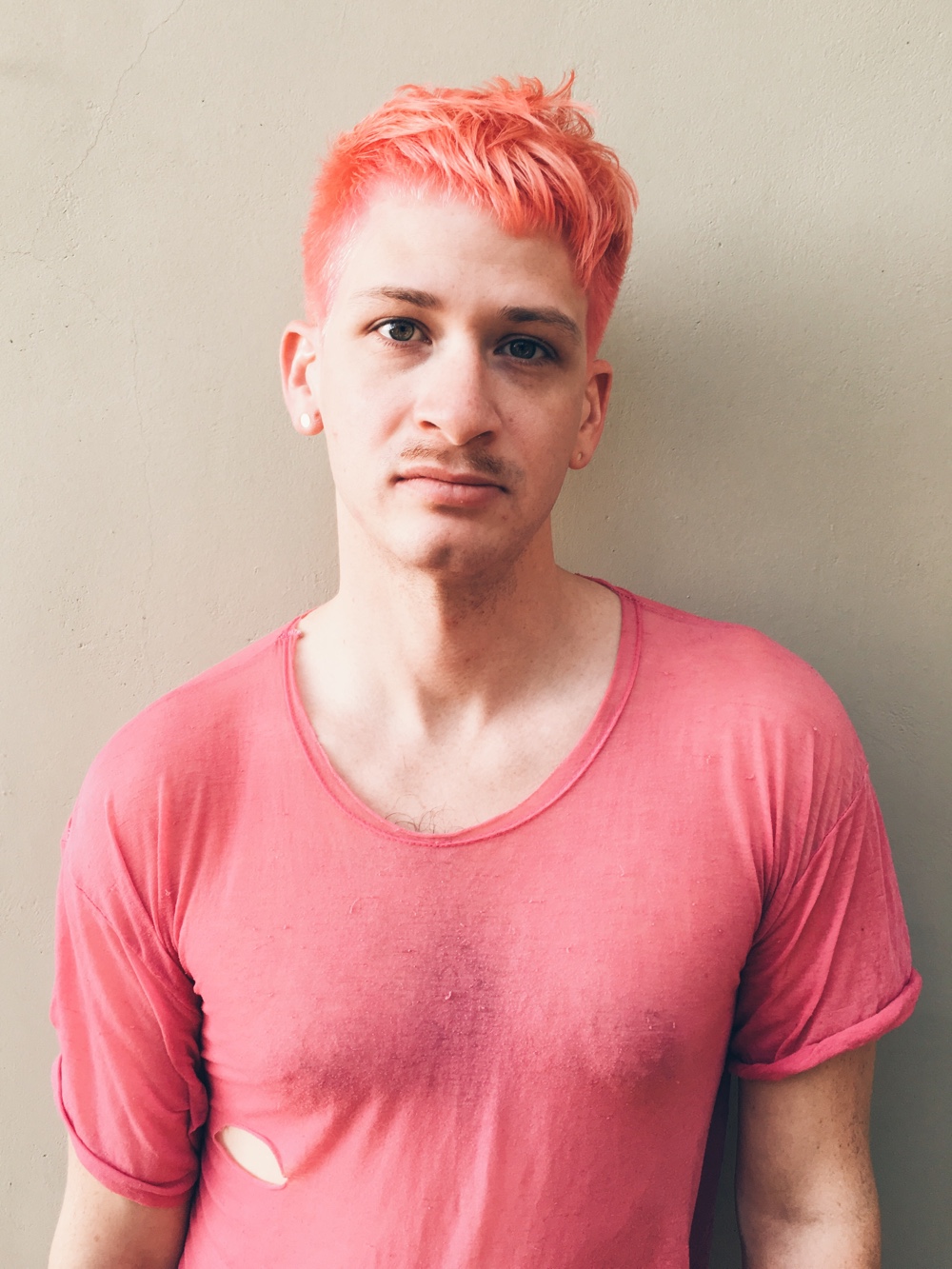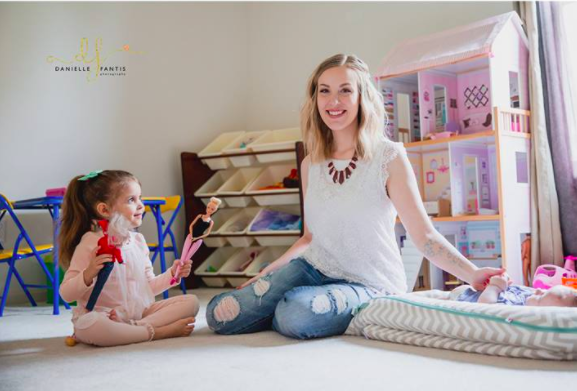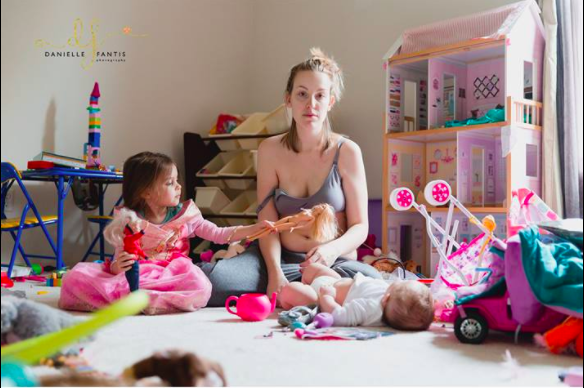Mom Demands We End The Silence on Postpartum Depression by Sharing Her Struggles

By:
May is a month typically associated with the approach of summer and the end of school, but it's also closely tied to maternity given the celebration of Mother’s Day.
One mom recently decided to use this month, which is National Maternal Depression Awareness Month, as an opportunity to share what it’s really like to suffer from postpartum depression.
Kathy DiVincenzo revealed in a Facebook post on May 1 that she has struggled with postpartum depression, in addition to anxiety and obsessive compulsive disorder (OCD). She posted two images to her Facebook: one depicted her and her children as a bedraggled and unhappy group in a messy play room, while the other featured them clean and smiling in a tidy version of the same space.
The mom of two used the images to represent how postpartum depression can make her feel.
 Kathy DiVincenzo Facebook - facebook.com
Kathy DiVincenzo Facebook - facebook.com
“Both of these pictures represent my life depending on the day,” DiVincenzo wrote on Facebook. “The only thing more exhausting than having these conditions is pretending daily that I don't...I'm afraid you'll think I'm weak, crazy, a terrible mother, or the other million things my mind convinces me of and I know I'm not alone in those thoughts.”
The post has gotten more than 44,000 reactions and has been shared nearly 69,000 times.
 Kathy DiVincenzo Facebook - facebook.com
Kathy DiVincenzo Facebook - facebook.com
DiVincenzo’s post is resonating with a lot of other parents, too, because she isn’t alone: one in seven women experience postpartum depression.
The issue often goes unnoticed because of stigmas attached to the subject.
As NPR reported in 2013, many women do not speak up when they’re struggling with feelings like being in "a deep dark hole" because they feel guilty and embarrassed.
"Postpartum depression is treatable with pharmacologic therapy and/or behavioral health interventions. However, depression is often underdiagnosed and untreated; nearly 60 percent of women with depressive symptoms do not receive a clinical diagnosis, and 50 percent of women with a diagnosis do not receive any treatment," according to the Centers for Disease Control and Prevention (CDC).
When an issue like postpartum depression goes untreated, the results can be fatal: as mental health non-profit The Seleni Institute reported in 2013, one in five women with postpartum had self-harm thoughts and suicide is the “second leading cause of death in postpartum women.”
Awareness and prevention are key in helping those with postpartum.
As more women face this problem, efforts like universal screenings for postpartum depression during and after pregnancies are being pushed since they’re so effective.
At the moment, screenings for postpartum are required in only three states — New Jersey, Illinois, and West Virginia — while many other states have education and awareness efforts in place.
Moreover, celebrities are helping draw attention to the problem and thusly inspiring a dialogue about maternal mental health. Most notably, model and TV host Chrissy Teigen explained earlier this year in Glamour that she has struggled with postpartum depression.
"Postpartum does not discriminate," Teigen wrote in the now-viral article. "I couldn’t control it. And that’s part of the reason it took me so long to speak up: I felt selfish, icky, and weird saying aloud that I’m struggling."
DiVincenzo's post is a reminder of how pervasive this problem is and that speaking up and discussing it can be incredibly helpful.
Read the mom's full post below.
